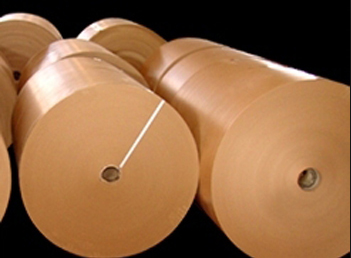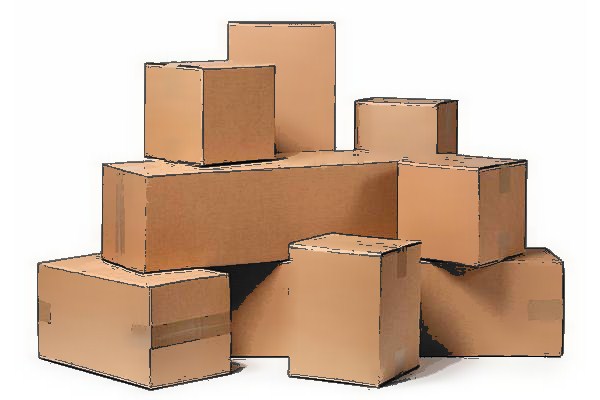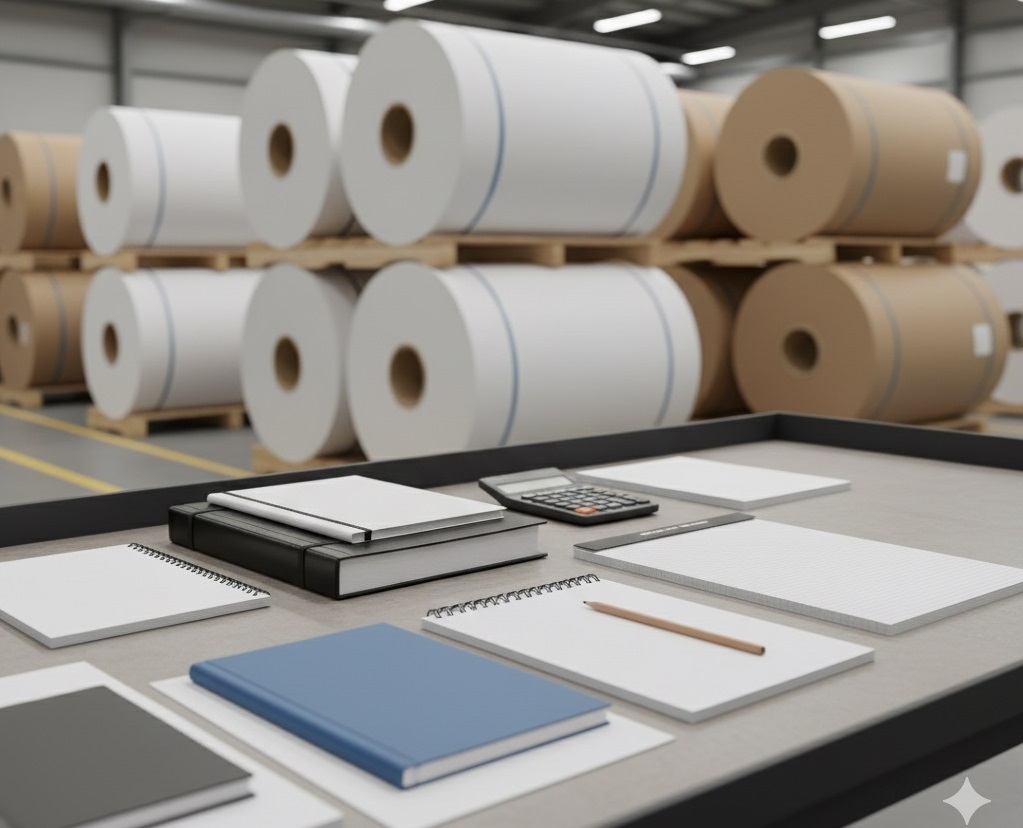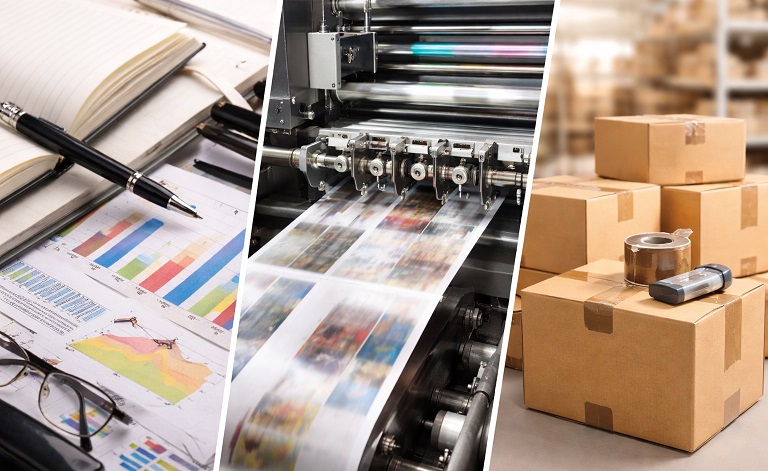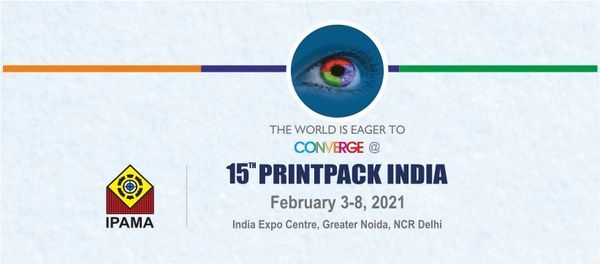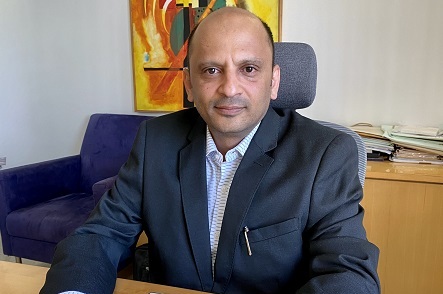Single-Use Plastic Ban: Everything, at each level, alternative for plastic will be expected from paper
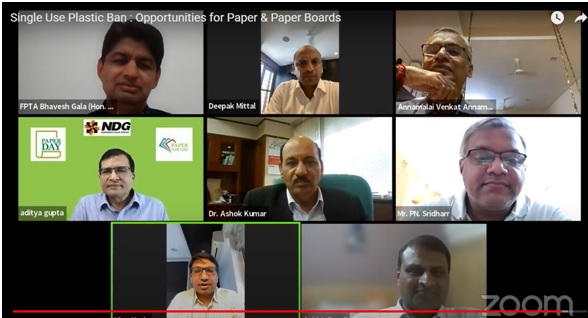
Single-Use Plastic Ban: Everything, at each level, alternative for plastic will be expected from paper
-Packaging contributes to almost 50 % of plastic waste generation, and 77 % of that is single-use plastic.
-Single-use plastic ban has opened up the requirement for Kraft paper, Sack Kraft Papers, Maliptho, MG poster, coated and uncoated paperboards, greaseproof and glassine paper, etc
- The food packaging business is seeing an upward trend of around 500 billion dollars in the coming five years
24th July 2022 | The Pulp and Paper Times:
The Federation of Paper Traders Association (FPTA), India, organized a webinar discussing the opportunity that has arisen for the paper and paperboard manufacturers due to the ban imposed by the Government of India on single-use plastic items.
Mr. Deepak Mittal, President of FPTA, said, "The transformation from plastic to paper is an opportunity for Paper boards and molded fiber products. The association believes the shift from plastic to paper could be the next mega trend in the next decade. It could propel the current growth rates from 6-7% to double digits. This step will make India one of the fastest growing paper markets in the world."
He added, "It is noticeable that the city's drainage system has already clogged with single-use plastics. Also, the rivers are overflowing with plastic waste, and the seas and oceans are washing ashore. Over the years, the environmental damage has increased manifold with the increasing usage of single-use plastic items. In line with that, our honorable Prime Minister, Mr. Narendra Modi, imposed a ban on single-use plastic from July 1, 2022. The Ministry of Forest and Environment Climate Change notified on August 12, 2021, the plastic waste management amendment rules 2021 for it to become law from July 1, 2022."
"The adverse impact of littered single-use plastic on our ecosystem has been globally recognized. It has become a challenge for all the countries across the globe. With the efforts of the people and stakeholders, the ban will succeed. Banning plastic is one thing, but being in the paperboard business is another, and it creates an opportunity for all to make a change," Mittal added.
Mr. Ved Krishna, Strategy head of Yash Pakka, shared his insights over the ban and how Yash packaging and Yash Pakka are creating a difference in making the new paper for the food industry. He said, "All this comes to scaling the food packaging industry." He and his company have a dream that goes way beyond the idea of a plastic ban.
"The idea is to leave a cleaner planet for future generations. To achieve that, the idea for us, as an organization, is to provide regenerative and sustainable packaging. Our company focuses on the goal to achieve sustainable packaging and give back more than we take to nature. Packaging contributes to almost 50 % of plastic waste generation, and 77 % of that is single-use plastic. On average, the life of single-use plastic is 12 minutes, which means it is used only for 12 minutes. The food packaging business is seeing an upward trend of around 500 billion dollars in the coming five years. We, currently, are focusing on three types of food packaging Compostable paper-based flexible material, Compostable mineral-based pellets for carrying the food, and food serviced Compostable molded pulp-based materials."
Mr. P.N Shreedhar, DGM, Sustainable Products and Packaging, ITC-PSPD, shared how the plastic ban will impact the industry in the next couple of years. "Plastic waste processing is emerging as a big business opportunity. The road map for all manufacturers for the next five years is to incorporate a certain quantum of recycled plastics into production. The government is planning to give environmental compensation or recycling certificates. On the other hand, the manufacturer will also be penalized if they fail to manage the plastic they put out on the market," he added.
"We have started working as far as paperboards are concerned on a certain application, where we have removed the LDPE. The plastic ban will impact more or less everyone in society as they move forward. Everything, at each level, alternative for plastic will be expected from paper. Already there is a jump in the manufacturing of paper, sticks, straws, cups, and bags, and we will witness many alternatives for secondary packaging. We will see traders turning into MSME converters for emerging paper-based applications in the future," he opined.
Dr. Ashok Kumar, Executive Director, Pudumjee Paper Products Ltd., spoke about the opportunities the ban will create. He shared that the idea to ban single-use plastic was discussed since 2010 but got delayed for some reason or other. There will be National and state-level control room setup to ensure effective enforcement. The government is taking measures and initiatives to eliminate and create awareness towards reducing the use of single-use plastic by bringing together entrepreneurs and start-ups with the industrialists, State, and Local governments.
"I think there is an opportunity for paper and paperboard manufacturers as the single-use plastic ban has opened up the requirement for Kraft paper, Sack Kraft Papers, Maliptho, MG poster, coated and uncoated paperboards, greaseproof and glassine paper, etc. All paper mills have an opportunity to take advantage of this single-use plastic ban, but we have to remember that we have to manufacture suitable quality paper."
"The research and development of these new products need tremendous efforts. There is a need for close interaction with paper converters/paper dealers to develop solutions to replace plastic. It is the responsibility of the manufacturer or traders to provide the right quality of paper for different applications. Paper manufacturers/traders/converters must get together and put in their best efforts to develop products. Some solutions are already available, but we need to develop the remaining," he shared.
He added, "There is an opportunity for paper traders as the market will evolve and grow more than we can imagine. Paper traders will have to put in a lot of effort to stay aware of all the new regulations and certifications."
FACT & FIGURE:
-Global Plastic Waste Production: Approximately 400 million metric tons
-Approximately 36 % of all plastics produced; are used for packaging of Which 85% ends up in landfill or as unregulated waste.
-Total Plastic Demand in India for the financial year 19-20 was 16 million metric tonnes.
-Plastic waste generation in India reached around 3.4 million metric tonnes in 2019-20.
-As per CPCB's 2015 report, India has produced 25940 metric tons of plastic waste per day, of which 60% is recycled, and the rest 40% is disposed of.
-Around 1000 trucks per day are needed to transfer this waste which clogs drains, rivers, and seas.
Web Title: Single-Use Plastic Ban: Everything, at each level, alternative for plastic will be expected from paper




 Join WhatsApp Group
Join WhatsApp Group Join Telegram Channel
Join Telegram Channel Join YouTube Channel
Join YouTube Channel Join Job Channel (View | Submit Jobs)
Join Job Channel (View | Submit Jobs) Join Buy Sell Channel (Free to Submit)
Join Buy Sell Channel (Free to Submit) Paper News Headlines Channel (Free to read)
Paper News Headlines Channel (Free to read)


